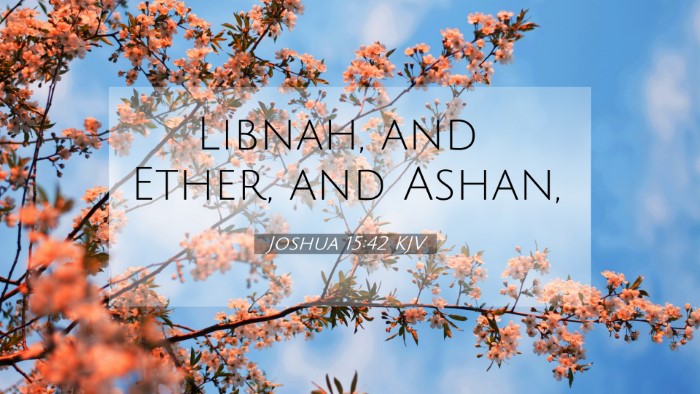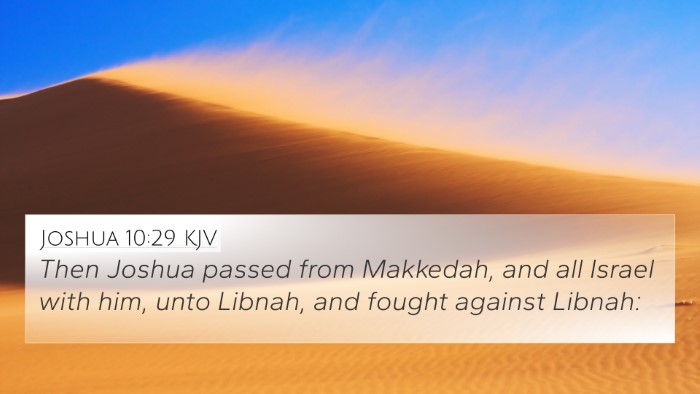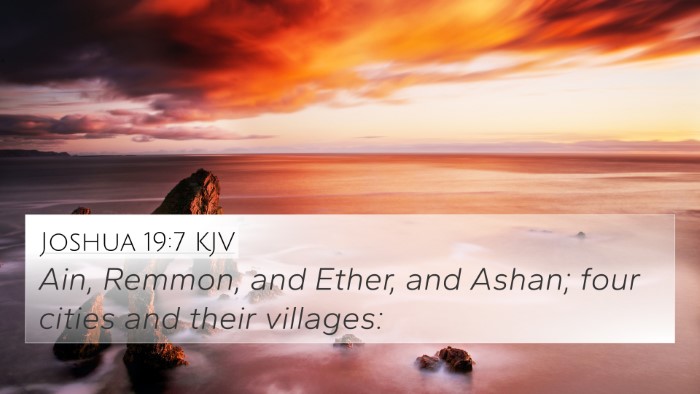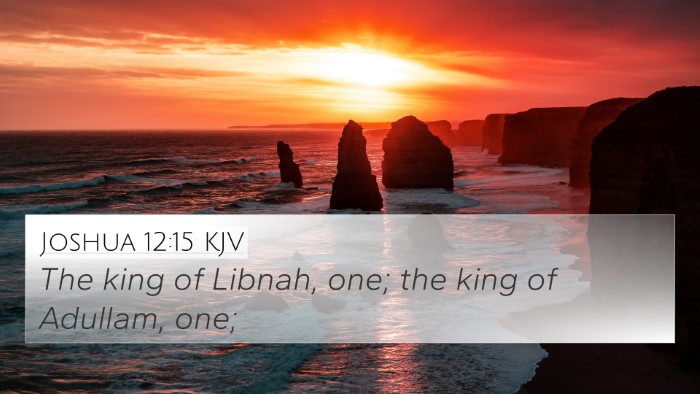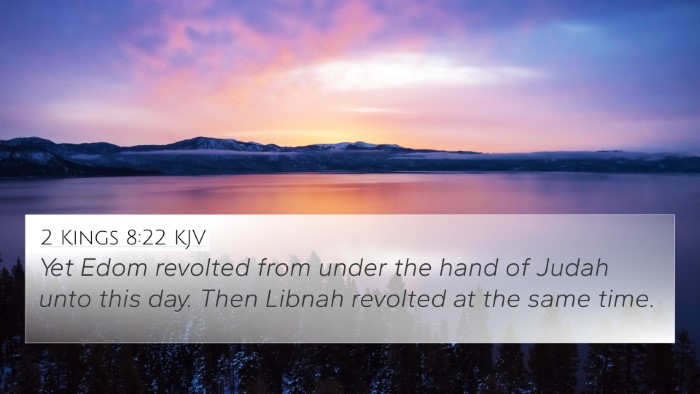Understanding Joshua 15:42
Text of Joshua 15:42: "And Libnah, and Ether, and Ashan." (KJV)
Summary of Meaning
Joshua 15:42 is a part of the territorial allocations for the tribe of Judah. The passage lists
specific cities that were part of their inheritance, highlighting the divine providence and guidance
in the distribution of land among the Israelites. The mention of Libnah, Ether, and Ashan
emphasizes the importance of these locations in the historical context of Israel's settlement
in the Promised Land.
Commentaries Overview
Matthew Henry:
Henry notes that the city of Libnah was particularly significant as it had historical connotations,
being a former place of importance during the conquests led by Joshua. It represents God's faithful
fulfillment of His promises to Israel regarding their inheritance of land.
Albert Barnes:
Barnes emphasizes the geographical significance of these towns, suggesting that understanding
their locations provides insight into the larger landscape of Biblical history and the narratives
surrounding Israel's settlement. These cities were key in their strategic and military positioning.
Adam Clarke:
Clarke elaborates on the cultural and theological implications of these cities, discussing how
the naming of locations within the text reflects Israel's identity and their relationship with God.
He highlights how each city has a story connected to Israel's journey and God's purposes.
Connections and Cross-References
Joshua 15:42 is not merely a historical note; it is interconnected with various themes presented throughout
Scripture. Below are key Bible verse cross-references that relate to this passage:
- Joshua 10:29-31: Relates to the conquests that took place in the region, confirming God's
promise to Israel.
- 2 Kings 19:8: Highlights the historical significance of Libnah in the context of
Israel's battles.
- Hebrews 11:33-34: Talks about faith through the conquests that includes the cities mentioned.
- Nahum 3:9: Connects to the area in context of God's judgment and history of various
locations.
- 1 Chronicles 4:24: Provides genealogical references that relate to the tribe of Judah.
- Joshua 12:15: Discusses the kings defeated and places allocated affirming God's
promised inheritance.
- 1 Samuel 14:14: Events that transpired demonstrate battles in similar regions affirming
the importance of strategic locations.
- Isaiah 37:8: Further discusses the city of Libnah within the context of the Assyrian
invasion, emphasizing God's protection over His people.
- Micah 1:14: A prophetic mention of the region that has implications on future settings
in Israel’s history.
- Matthew 1:3: Links the lineage from the tribe of Judah indicating the importance of
the locations within the family tree of Christ.
Thematic Connections
This verse also opens up a wider examination of thematic Bible verse connections:
- Divine Promise and Fulfillment: Throughout the Old Testament, God's promises to
Israel regarding their inheritance are a recurring theme, seen in verses like Deuteronomy 1:21.
- Identity and Land: The land symbolizes God's provision and identity for His people,
reflected in Psalm 37:29.
- Historical Narrative of Conquest: The accounts in Genesis through Joshua associate
God's guidance in establishing His chosen nation in the land.
- Unwavering Faith: The strength of faith portrayed in battles and conquests connects
deeply with Romans 8:37, emphasizing victory through God.
Conclusion
Joshua 15:42 serves as a reminder of God’s faithfulness in leading Israel to their promised inheritance.
By cross-referencing this verse with others, we can see deeper connections throughout the Bible that
reflect on the themes of divine promise, identity, and historical significance. These insights encourage
current believers to appreciate the rich tapestry of scripture and the pivotal role of God's word in
shaping the understanding of His relationship with humanity.


